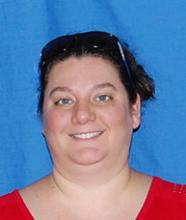Positive Behavior Supports (PBS) is a systematic, person-centered approach to understanding and responding to behavior. It is widely recommended for use with people with intellectual and developmental disabilities so they can reach their full potential.
-
What is PBS?
PBS incorporates evidence-based practices for prevention, proactive intervention, teaching and responding to behavior so that individuals with intellectual and developmental disabilities can achieve meaningful social outcomes and improved quality of life.
PBS emphasizes the use of positive behavior approaches and recognizes that behavior is a form of communication that is often informed by an individual’s response to their environment. Therefore, PBS focuses on environmental modifications, preventative antecedent strategies, and teaching desired and replacement behaviors.
PBS emphasizes person-centered planning and incorporates established principles of applied behavior analysis (ABA), including both functional behavioral assessment (FBA) and evidence-based interventions.
-
PBS at The Guild
In conjunction with caregivers, medical providers, residential staff, DDS staff and individuals served, The Guild’s behavior clinicians create a behavior support plan for each individual based on their unique goals and needs in alignment with the principles of PBS.
Behavior clinicians at The Guild assist individuals in engaging in healthy coping skills and socially appropriate behavior so they can successfully participate in community life. All individuals receive universal supports under the PBS framework, which are preventative and proactive practices that aim to increase independence. Some individuals with complex needs benefit from a higher-level plan – targeted or intensive – that incorporates PBS in conjunction with the principles of ABA so they can learn to engage in safe behaviors.
PBS is a regulatory framework, not a prescription, designed to encourage and improve individual treatment. Clinicians work with residential staff to provide frequent training around PBS best practices.


